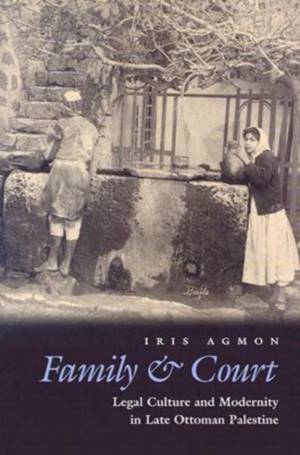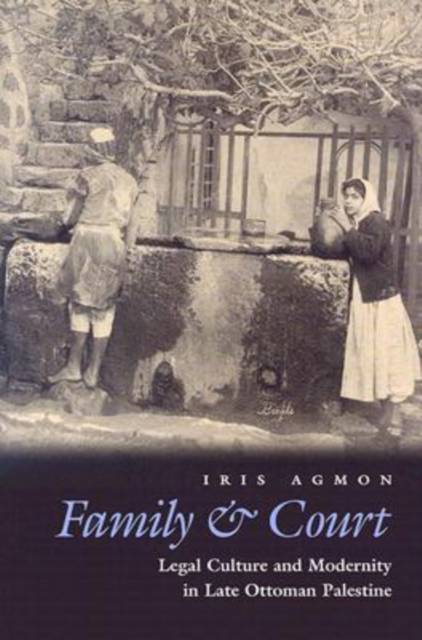
Door een staking bij bpost kan je online bestelling op dit moment iets langer onderweg zijn dan voorzien. Dringend iets nodig? Onze winkels ontvangen jou met open armen!
- Afhalen na 1 uur in een winkel met voorraad
- Gratis thuislevering in België vanaf € 30
- Ruim aanbod met 7 miljoen producten
Door een staking bij bpost kan je online bestelling op dit moment iets langer onderweg zijn dan voorzien. Dringend iets nodig? Onze winkels ontvangen jou met open armen!
- Afhalen na 1 uur in een winkel met voorraad
- Gratis thuislevering in België vanaf € 30
- Ruim aanbod met 7 miljoen producten
Zoeken
€ 67,95
+ 135 punten
Omschrijving
The popular image of the family and the court of law in Muslim societies is one of traditional, unchanging social frameworks. Iris Agmon suggests an entirely different view, grounded in a detailed study of nineteenth-century Ottoman court records from the flourishing Palestinian port cities of Haifa and Jaffa. She depicts the shari'a Muslim court of law as a dynamic institution, capable of adapting to rapid and profound social changes indeed, of playing an active role in generating these changes. Court and family interact and transform themselves, each other, and the society of which they form part.
Agmon's book is a significant contribution to scholarship on both family history and legal culture in the social history of the Middle East.Specificaties
Betrokkenen
- Auteur(s):
- Uitgeverij:
Inhoud
- Aantal bladzijden:
- 288
- Taal:
- Engels
- Reeks:
Eigenschappen
- Productcode (EAN):
- 9780815630623
- Verschijningsdatum:
- 3/01/2006
- Uitvoering:
- Hardcover
- Formaat:
- Genaaid
- Afmetingen:
- 192 mm x 240 mm
- Gewicht:
- 539 g

Alleen bij Standaard Boekhandel
+ 135 punten op je klantenkaart van Standaard Boekhandel
Beoordelingen
We publiceren alleen reviews die voldoen aan de voorwaarden voor reviews. Bekijk onze voorwaarden voor reviews.











